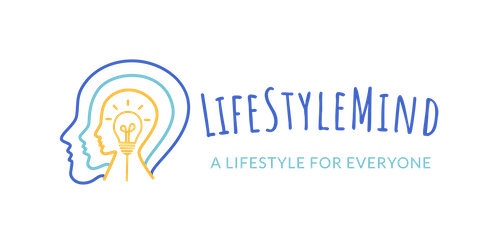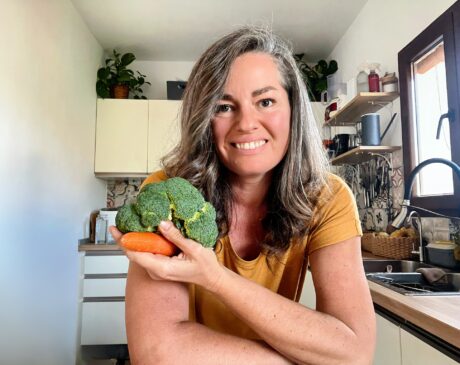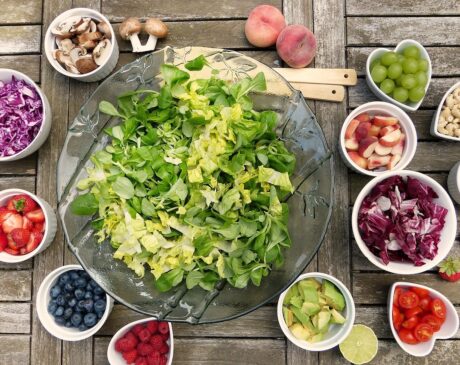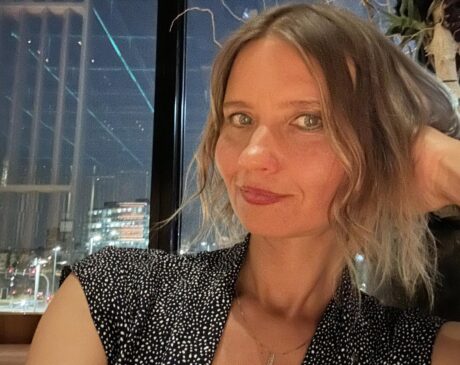Gary Meyer’s Fruitarian Odyssey: A Journey of Health and Transformation
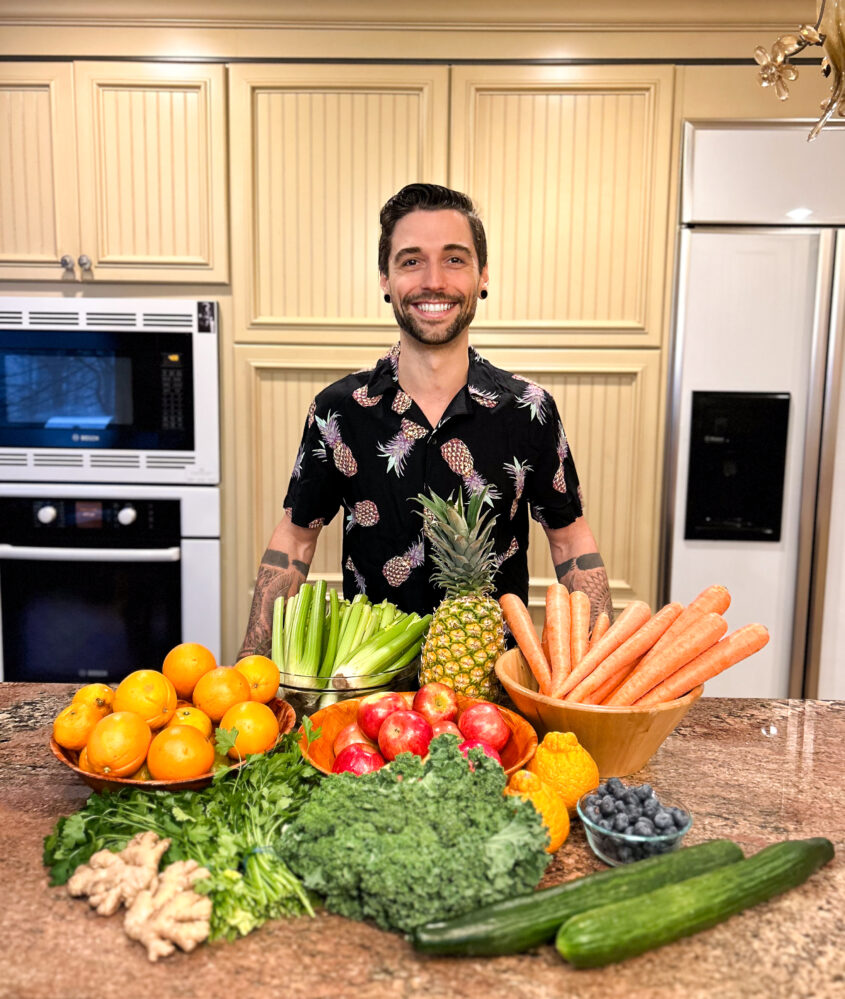
In today’s fast-paced world, where processed foods often take center stage on our dinner plates, the story of Gary Meyer offers a refreshing glimpse into a healthy lifestyle that harks back to nature’s basics. Gary, a 34-year-old holistic health coach and iridologist from Germany, now residing in Connecticut, USA, shares his transformative journey into becoming a fruitarian.
With over a decade of experience following a diet consisting predominantly of fruits, Gary’s story is not just about dietary choices but a testament to a profound lifestyle change that has impacted every facet of his life.
From overcoming health challenges to experiencing a deep spiritual awakening, Gary’s narrative is a compelling exploration of how aligning our eating habits with nature can lead to unparalleled health benefits and personal growth.
Gary’s Meyer Interview
Hi Gary! Nice to meet you…tell us a little about yourself and how you became a fruitarian!
Hello everyone! So, I’m Gary Meyer, 34 years old, originally from the northern region of Germany, near Hamburg. In the past five years, I resided in the tropical landscapes of Paraguay, South America, before recently relocating to Connecticut in the United States.
My professional journey has been deeply influenced by my commitment to supporting individuals in overcoming their health challenges. This led me to transition into a career as a holistic health coach and iridologist in 2018, following several years of managing a gym with my dad in Germany.
For those unfamiliar with Iridology, it is the analysis of the iris, which shows us our unique genetic makeup. By examining the iris’s structure and color, we can gain insights into which areas of the body may require attention and understand our inherent predispositions.
This knowledge is invaluable not only for preventing potential health issues but also for pinpointing the roots of existing ailments. Additionally, Iridology shows us certain personality characteristics, which is my favorite attribute of Iridology.
This helps us to identify deep-rooted beliefs and perspectives that could be limiting our true potential.
Over the last 11 years, I followed a fruit based diet, meaning that roughly 90% of my caloric intake comes from fresh and raw fruits, complemented by a variety of vegetables, leafy greens, nuts, and seeds.
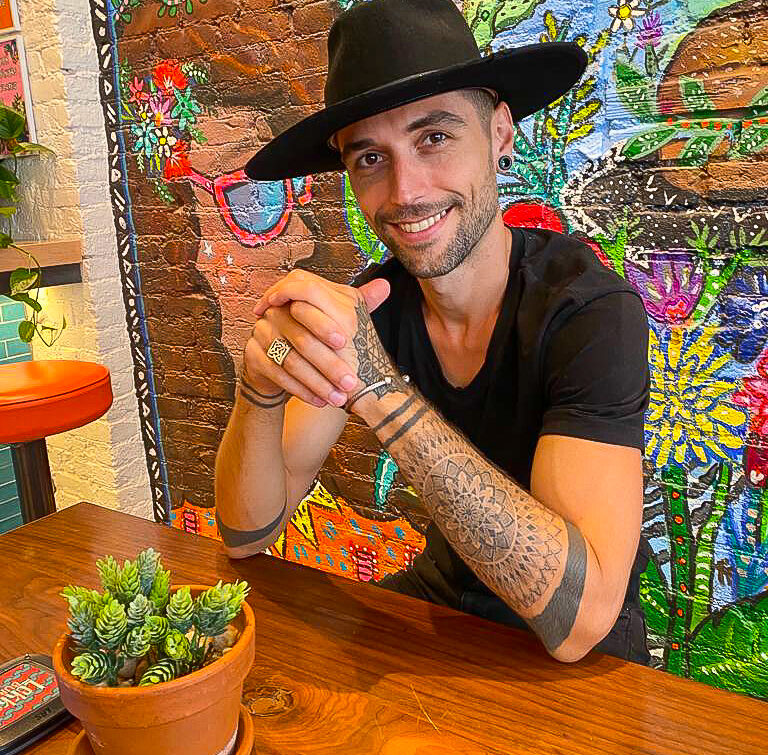
And why did you decide to embark on this dietary path to become fruitarian?
I chose to explore this particular dietary path out of curiosity. I’m a guy who needs self experience, and as I learned more about the science of a raw, fruit-based diet and its remarkable potential for bodily healing, I felt excited to experience its effects firsthand.
This knowledge and decision came at a crucial time when I was dealing with terrible digestion, skin breakouts, and significant challenges like depression, brain fog, and chronic fatigue, which had a great impact on my daily life.
Do you feel better since becoming fruitarian? What changes have you noticed?
This shift in my diet was nothing short of life changing. The impact was profound, with one of the earliest improvements being the noticeable clarity of my skin after only a couple of weeks.
The anti-inflammatory properties of this diet, coupled with the cleansing ability of certain fruits on the lymphatic system, our body’s sewer system and natural detox pathway, made a significant difference.
Imagine what issues it would cause if we wouldn’t regularly take our trash out; for the body, skin problems and breakouts arise when waste isn’t effectively eliminated.
I always teach my clients about the importance of maintaining a system that’s as clear and flowing as a vibrant stream, rather than stagnant like an unpleasant pond. This will prevent most of our common societal health issues.
Furthermore, there was a remarkable elevation in my energy levels, leading to a gradual disappearance of my fatigue, which significantly enhanced my performance in both workouts and daily activities, and interestingly I also experienced a notable reduction in my recovery time post-exercise.
I didn’t get the typical “food coma” after my meals anymore, because fruits are the easiest to burn fuel for our body. It feels like finally I’m putting the right type of gas into my car.
One of the most profound changes was that for the first time in years, my mind became clear and sharp, with a shift from negative, depressive thoughts to a more positive outlook on life. The saying “we are what we eat” truly resonated with me; a diet consisting of fresh, ripe, raw, and energetically alive foods not only benefits the physical body but profoundly influences our mental state as well.
Is there any food that you have had more difficulty eliminating from your diet?
Growing up in Germany, I loved the high-quality bread available there, which made it challenging for me to cut it out of my diet for a while.
The more I tried to do so, the more I became aware of its addictive nature and the emotional connections we often develop with certain foods since our childhood.
It took me about two years to completely let go of bread and all cooked foods. This experience made it clear to me that having a clear vision and understanding the ‘why’ behind our choices, whether it’s transitioning our diet or making any significant life changes is crucial, as it provides us with lasting motivation.
Are there still many stereotypes associated with this type of choice?
I think the most common stereotype linked to this lifestyle is the image of a malnourished, extremely thin raw vegan / fruitarian. This can stem from various reasons.
It might be that the individual is restricting their calorie intake, which is a common mistake a lot of people make, especially in the beginning. They also may engage in excessive fasting, which could have adverse effects over time and definitely leads to a thin appearance.
Alternatively, they could be in an initial phase of detoxification, during which the body focuses on eliminating toxins and waste products, a process often observed at the start of someone’s dietary shift.
Another possibility is poor nutrient absorption due to biofilm buildup, so called mucoid plaque, in the intestines, which can be addressed through an extended juice cleanse to help cleanse the system effectively and open up the gateway for proper nourishment.
Can you tell us about a typical day for you?
I usually start my days with a 32-ounce fresh-pressed green juice, which gives me a boost of minerals and good hydration first thing in the morning.
I typically make a blend of apples, cucumber, pineapple, celery, lemon, kale, parsley, cilantro, ginger, and turmeric. Following that, I enjoy a bowl of fruit, perhaps with grapes, mangoes, melons, or apples, based on availability and what attracts me the most.
Lunch is often a big smoothie made from bananas, dates, and mixed berries, which usually keeps me satisfied until dinner.
If I need a snack, I go for a handful of nuts like almonds, cashews, or Brazil nuts. Dinner consists of a large salad made of lettuce, tomatoes, cucumber, red bell pepper, avocado, and sprouts, dressed with one of my homemade raw dressings, such as mango curry or avocado ranch.
Throughout the day, I make sure to hydrate with around 2 liters of water and in the evening I end my day with an herbal tea.
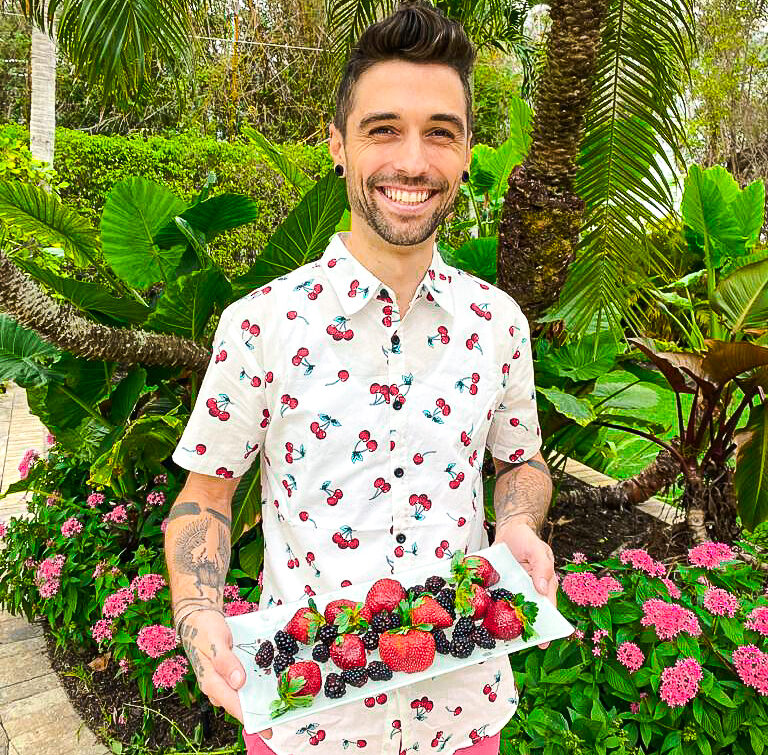
How do you manage birthdays, dinners with friends, eating out?
When I’m attending birthday parties or gatherings with friends and family, I usually bring my own food to simplify things for everyone and ensure I have something I enjoy.
On rare occasions, I might try a meal prepared by a family member or friend, given it’s vegan. Going out to restaurants that don’t have raw or vegan options usually means I’ll order a large salad and bring my own dressing, as restaurant dressings are usually unsatisfying to me.
If there’s a vegan option available, I might occasionally make an exception, as I truly believe that it is most important what we do 95% of the time, and splurging out every now and then for fun is perfectly fine, as long as we immediately realign with our usual dietary habits.
For those wondering: How do you make sure to follow a balanced regime by eliminating so many foods from your diet?
It’s essential to incorporate a diverse range of fruits, vegetables, leafy greens, nuts, and seeds into one’s diet, basically eating all the colors of the rainbow to ensure the body receives all the nutrition it needs.
Going for seasonal, organic, or even homegrown produce is ideal for maximizing freshness, quality, and nutrient density.
Eating sufficiently until you are satisfied is crucial with this diet, given that these types of food are less calorie-dense compared to those typical of a standard American diet.
I found that geographical location also plays a significant role. For example, when I was living in Paraguay, where the soil is rich and most fruits are locally grown and picked ripe, I was pretty much only drawn to fruits.
In contrast, in the United States, where fruit quality is usually not be as high, I find it beneficial to include more greens, nuts, and seeds in my diet.
Besides diet, has this change impacted other aspects of your life?
This lifestyle transformation has had a profound impact on my entire life, far beyond my diet and health. It actually has led to some of the most significant events and changes, from forming lifelong friendships at the Woodstock Fruit Festival to relocating to the tropics of Paraguay, changing my career path, and even meeting my wife.
Beside these incredible changes, it has also promoted a deeper spiritual awakening, which is a topic in its own right. I am immensely grateful for discovering this lifestyle and all the ways it has enriched my life.
Would you like to give some tips and advice to those who are thinking of embarking on this path to become fruitarian?
If you want to transition to a raw vegan or fruitarian diet and have a smooth and sustainable experience, there are a few key points.
Firstly, like I said earlier, making a deep connection with your reason for becoming fruitarian and making this change is vital to keep you motivated. Start gradually by first adapting your breakfast to only fruits for a few weeks, until it feels easy for you, then do the same with your lunch, and then finally your dinner. This way will ease both your body and mind into the new lifestyle and minimizing intense detox symptoms.
Finding a supportive community, both online and in the real world, is essential, given the relatively few individuals who follow this path, which can sometimes lead to feeling isolated.
Lastly, working with an experienced coach, like myself, is extremely valuable for gaining accurate knowledge and having someone to hold you accountable.
Thank You, Gary!
Gary Meyer’s journey into fruitarian diet is a vivid illustration of how alternative dietary paths can lead to significant health improvements, mental clarity, and an overall enhancement in quality of life.
His experiences serve as an inspiring testament to the power of food as medicine and the profound impacts that dietary choices can have on our physical, mental, and emotional well-being.
Through his work as a holistic health coach and iridologist, Gary continues to share his knowledge and passion, guiding others towards a more healthful, vibrant, and fulfilling life.
We extend our heartfelt thanks to Gary for sharing his journey and insights with us. His dedication to promoting health and wellness through a fruit-based diet is truly inspirational.
For those who wish to follow Gary’s journey or seek his guidance on embracing a healthier lifestyle, you can find him on his website at www.fruitfulsolution.com and on social media (Instagram, YouTube, Facebook, TikTok) under the handle FruitfulSolution.
Gary’s story on how to become fruitarian is a compelling reminder of the simplicity and richness that comes with turning to nature for our nutritional needs, and his work continues to light the way for those seeking to transform their lives through the power of food.
